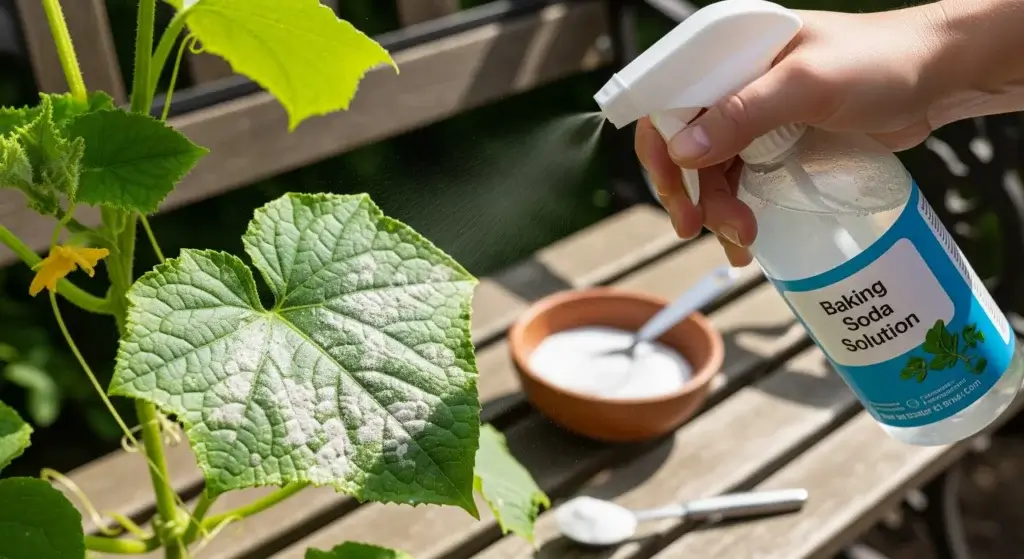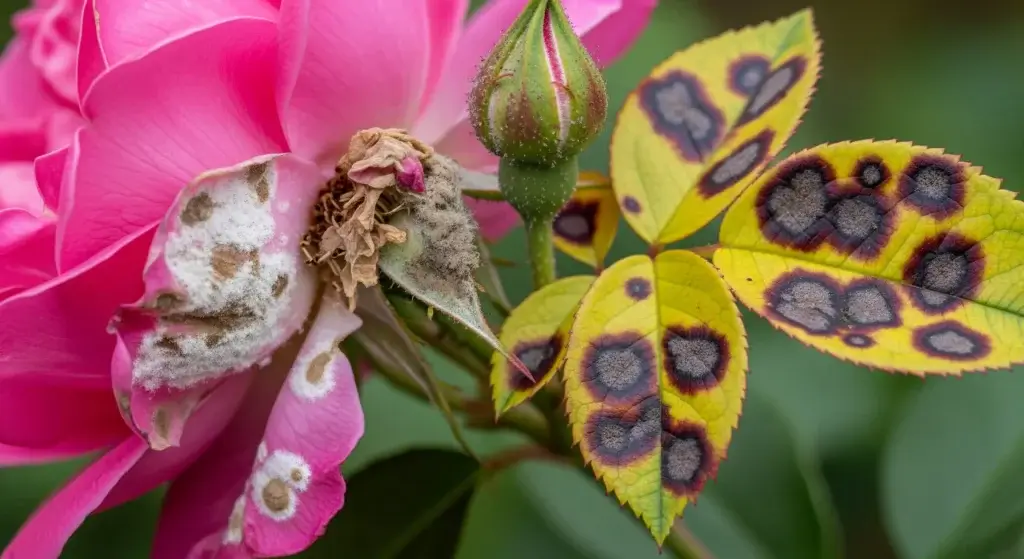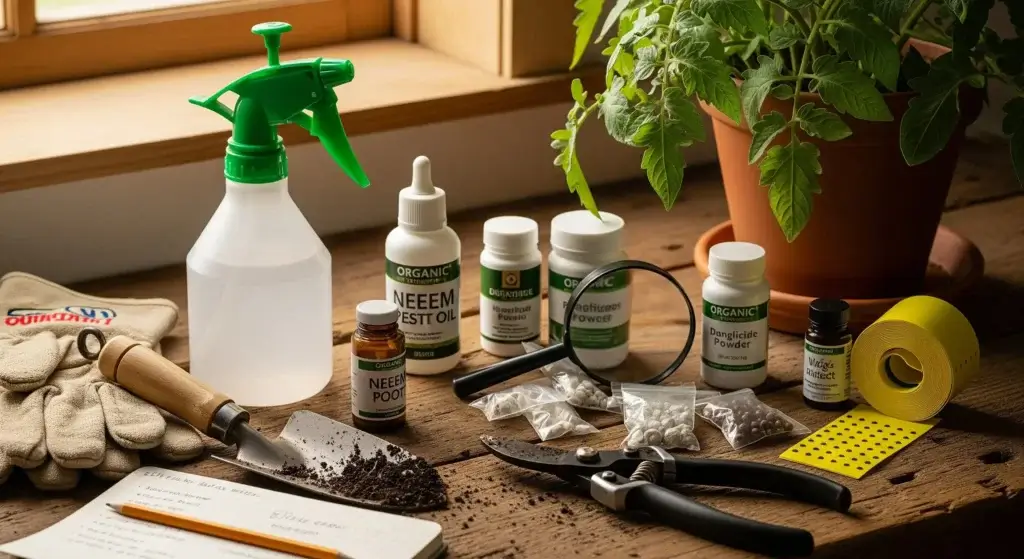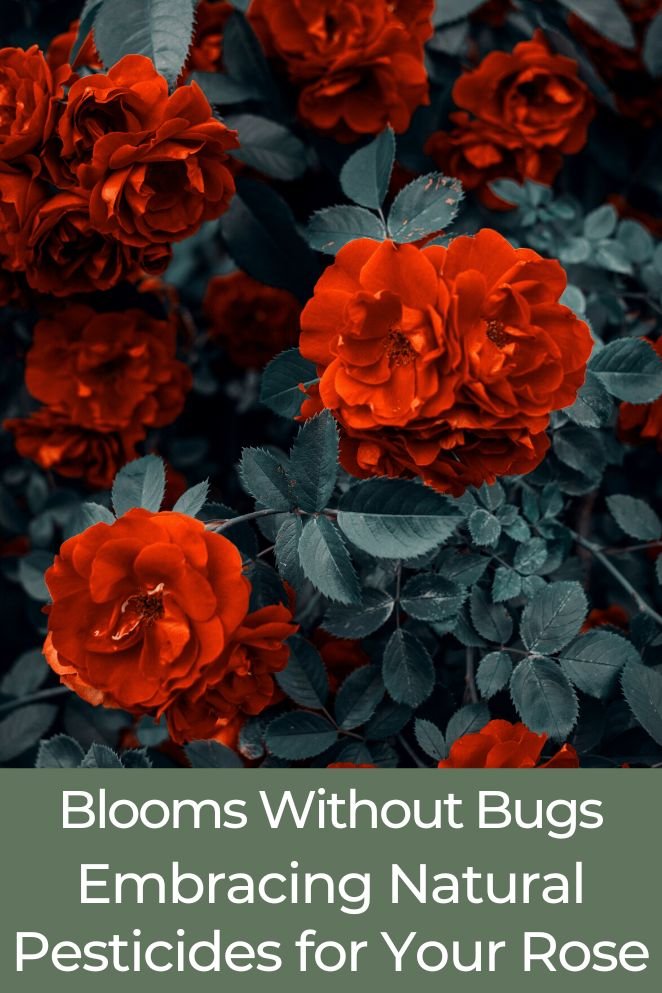
Admired for their enchanting beauty and delicate fragrance, roses stand as the crown jewels in many gardens.
Yet, the persistent battle against pests can dim their glory.
Fret not, as we embark on a journey into the realm of natural pesticides – your gateway to nurturing vibrant roses without resorting to harsh chemicals.
Explore the reasons, methods, and specific natural solutions that will safeguard your roses, ensuring they thrive in all their splendor.
Join us in unraveling the secrets to a pest-free and flourishing rose garden.
Are Roses Treated with Pesticides?
Indeed, roses frequently undergo pesticide treatments as a defense against common pests that pose threats to their well-being and aesthetics.
However, the reliance on chemical pesticides sparks apprehensions regarding potential harm to the environment, beneficial insects, and even the roses they aim to protect.
This is where the significance of natural alternatives comes to the forefront.
In navigating the delicate balance between preserving the allure of roses and minimizing environmental impact, exploring natural alternatives becomes a compelling and eco-conscious choice.
- Read also: A Guide to Natural Pesticides for Lettuce
- Read also: A Guide to Natural Pesticides for Tomatoes
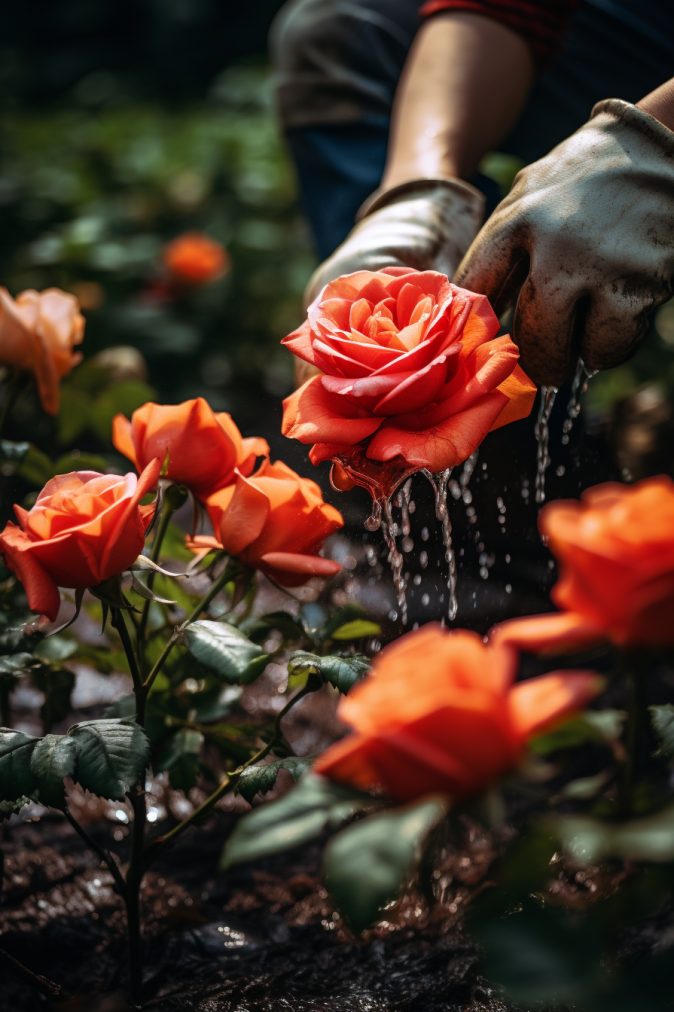
Common Rose Pests
Before we introduce the natural superheroes coming to your rose garden’s rescue, let’s shine a spotlight on the villains we’re up against:
Aphids
These tiny, sap-sucking insects have a penchant for congregating on delicate rosebuds and leaves.
As they feed, they induce distortion and discoloration, compromising the aesthetic appeal of your roses.
Identifying these clusters is pivotal for timely intervention to safeguard your rose garden’s beauty.
Thrips
Feast on the petals of your roses, leaving behind a telltale stippled or silver appearance.
Their voracious feeding can lead to premature petal drops, robbing your roses of their full splendor.
Recognizing the signs of thrips infestation is key to preserving the visual allure of your blooming roses.
Spider mites
Microscopic arachnids with a destructive agenda.
They extract the life from your roses, causing leaves to yellow and leaving behind delicate, yet troublesome, webbing.
Monitoring for these subtle signs is crucial for maintaining the vigor of your rose foliage.
Japanese beetles
Metallic green and copper-colored, these beetles are not just a visual distraction—they feast on rose foliage, leaving behind skeletonized leaves.
Their voracious appetite poses a threat to the overall health and vitality of your roses. Early detection is imperative to thwart their impact on your rose garden.
What Natural Pesticides Can I Use on Roses?
Embarking on a natural pesticide journey for your roses opens up a world of eco-friendly options:
Neem oil
Derived from the neem tree, neem oil stands out as a versatile natural pesticide.
Its effectiveness lies in disrupting the life cycle of pests, with aphids and spider mites being prime targets.
To apply, create a neem oil spray by mixing it with water.
Ensure comprehensive coverage by thoroughly spraying your roses, offering them a shield against potential pests.
Garlic spray
Beyond its reputation for repelling vampires, garlic emerges as a potent insect repellent for your roses.
To make a garlic spray, crush garlic cloves and mix them with water.
This concoction serves as a formidable deterrent for pests like aphids and thrips when sprayed generously on your roses.
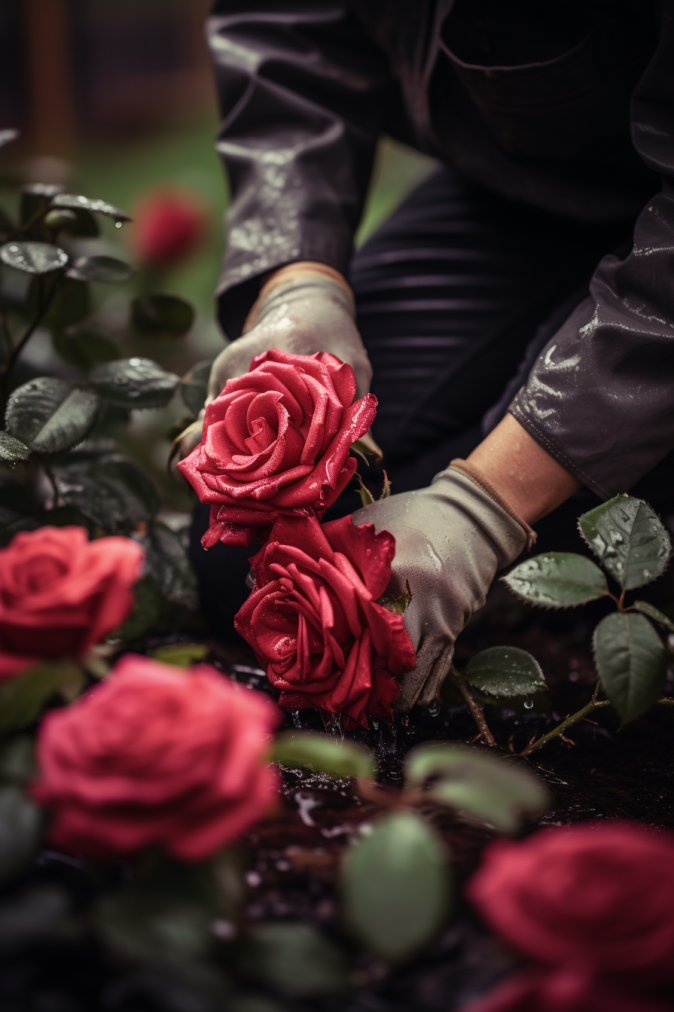
Soap spray
A straightforward yet effective remedy, soap spray proves its prowess against soft-bodied pests, particularly aphids.
To create this solution, mix mild dish soap with water.
When sprayed on your roses, this soap spray acts as a compelling force, prompting pests to retreat and allowing your roses to flourish.
Companion plants
Strategically introducing companion plants, such as marigolds and lavender, creates a symbiotic environment around your roses.
These companion plants serve as natural repellents, acting as guardians against common pests.
Marigolds emit a scent that deters nematodes, while lavender repels moths and other unwanted insects.
By planting these companions around your roses, you establish a protective barrier that enhances the overall health and vitality of your rose garden.
Diatomaceous Earth
Harnessing the power of food-grade diatomaceous earth involves more than just sprinkling—it’s a strategic defense.
This fine powder, derived from fossilized diatoms, acts as a mechanical pesticide.
When sprinkled around the base of your roses, diatomaceous earth forms a protective barrier that effectively eliminates crawling insects like beetles.
Its microscopic, razor-sharp edges penetrate the exoskeleton of insects, leading to dehydration and ultimately, their demise. Regular reapplication, especially after rain, ensures a continual shield for your roses.
- Read also: Natural Pesticides for Avocado Trees
- Read also: A Guide to Natural Pesticides for Your Herbs Garden
Conclusion
Unlocking the full splendor of your roses is not just a dream; it’s an achievable reality without jeopardizing your garden’s health.
By embracing natural pesticides, you not only shield your roses but also champion a garden-friendly, eco-conscious approach.
Dive into the world of these solutions, conducting experiments to strike the perfect balance for your blossoming beauties.
Discover the secrets to a garden where roses flourish, and eco-friendly practices reign supreme.
Join us in cultivating a vibrant and thriving rose haven.
FAQs
Yes, natural pesticides are generally safe for roses when used as directed. However, it’s advisable to test a small portion before widespread application.
The frequency of application depends on factors such as weather conditions and the severity of pest infestation. Regular monitoring will help you determine the optimal schedule.
Many natural pesticides are versatile and can be used on various plants. However, it’s always a good idea to research and test before widespread application to ensure compatibility with specific plant species.

